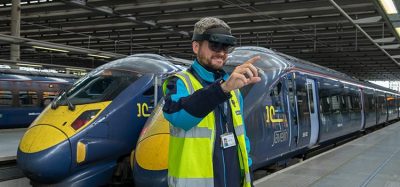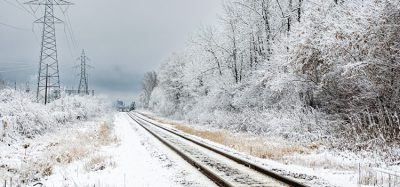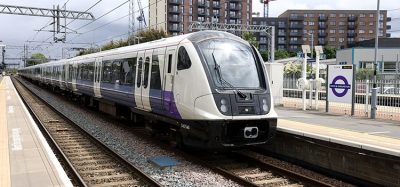Navigating new horizons: Robert From’s vision for Rail Europe’s transformative journey
Posted: 1 August 2024 | Robert From - Rail Europe | No comments yet
Robert From, Chief Growth Officer at Rail Europe, spoke to Global Railway Review’s Halimah Haque about his vision for leveraging data-driven strategies and customer-centric innovations to propel Rail Europe through its next phase of growth.
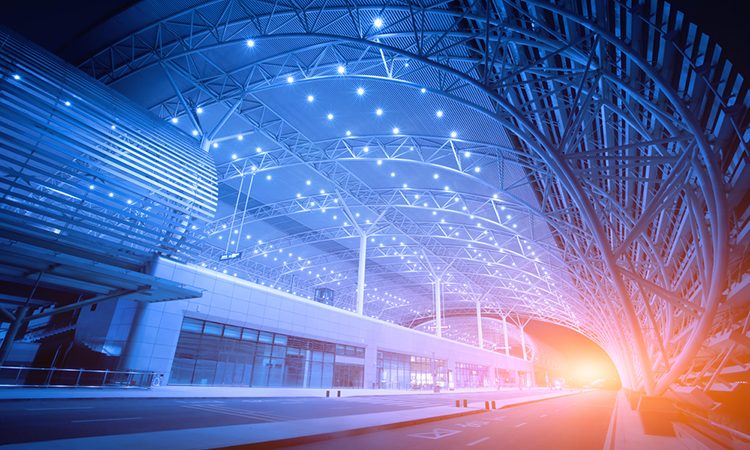

Robert, congratulations on your appointment, could you share with us what attracted you to join Rail Europe at this pivotal time in the company’s growth?
I want to be somewhere where I can have a big impact on a big opportunity. The rail industry overall is experiencing tremendous growth and there are some really interesting dynamics happening. Considering the situation that Rail Europe is in, the changes that are coming, and some of the work that the teams have been working hard to get live, I think it’s a fantastic time to join.
Also, having got to know Björn and the team a bit more, I feel that my background and the things that I’ve been fortunate enough to do in the past might be useful in this next part of the journey. So, that makes me very excited about it.
Your experience at MaaS Global with WHIM involved significant customer and revenue growth. How do you plan to apply those lessons to enhance Rail Europe’s B2C business?
There are a lot of lessons and experiences gained from my time at MaaS Global. But I think fundamental to this is the approach. Basically, this begins with having your starting point and grounding everything in a data-driven understanding of the customer. Really making sure that we know who we’re serving, what they need, how we can serve them best. The second part is having the right team; you need to have the right capabilities in the right place, working in the right setup.
Only after this can it go to step three and really focus on the right things. I say focus because, as you said, it’s an exciting time for the industry, an exciting time for the company. There’s tremendous opportunity. We’re talking about multi-billion-dollar markets, millions and millions of travellers. So, we need to be mindful and smart about how and where we place our bets and how we focus.
Rail Europe is about to launch a new booking experience in 2025. So, what are your top priorities in ensuring its success and delivering a superior customer experience?
Rail travel like this is not a one-size-fits-all. So, we need to ensure that we’re able to personalise the entire customer journey for all the user types”
As I touched on, the teams have been hard at work on this and I’m really, really impressed with what I’m seeing so far. But I think there are four pillars that can ensure its success and a superior customer experience. Firstly, we need to design for the user. It’s about building for the customer and really understanding how we make an experience that is easy, straightforward, and delightful.
The second point is about being personal, being bespoke, as rail travel like this is not a one-size-fits-all. So, we need to ensure that we’re able to personalise the entire customer journey for all the user types.
The third pillar is around seamless integration. We need to make sure that we integrate what we do seamlessly with all these other stakeholders. Given our existing infrastructure, we need to ensure it fits seamlessly into the bigger picture.
The fourth pillar is not specific only to rail, but it’s crucial for us and it is around making sure that everything is fast, reliable, and secure. That’s the only way that we can both serve customers well and earn their trust to keep them coming back in the future.
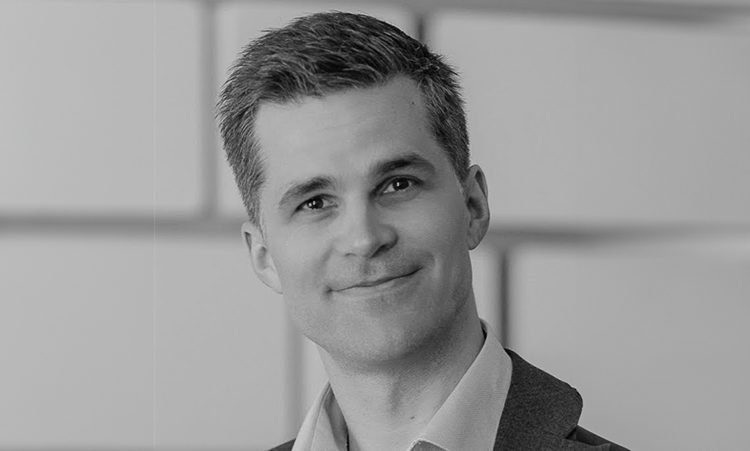

Credit: Rail Europe
Given your background in scaling technology and media businesses internationally, how do you envision leveraging technology to drive growth and innovation in the rail booking sector?
Using technology, specifically for me, it’s three areas or three opportunities that I think about. The first is around effectiveness. I think technology can be a force multiplier in taking customer understanding, customer knowledge, and creating these experiences that are deeply advanced, personalised, and super useful.
The second point is about efficiencies. This is a low-margin business overall, there’s a lot of competition and it’s imperative that we’re cost-conscious about what we do. So, using technology, we need to be masters of automation, we need to be really good at operational efficiency.
The third opportunity is the ecosystem. Like I said before, we are players in this broad, vast industry with all types of stakeholders, big and small, regional and so on. Technologies are a way to connect between services and platforms, to build bonds, and create that ecosystem and be part of that ecosystem together.
Customer acquisition and retention are some of your key areas of focus in this new role. What strategies have you found to be most effective in previous positions and how might they be adapted for Rail Europe’s customer base?
That’s the big question, across from customer acquisition all the way to customer retention. And I think you have the keyword right there in your question. It is about truly being customer-centric. For me, customer centricity is not haphazardly trying to be everything to everyone, everywhere at once. That will never work and it’s just not feasible. But if we start by having a really deep understanding of our customers and their needs, we can then apply that consistently across our marketing acquisition and brand development efforts. We can apply them consistently across what products we build and how we develop our offering overall, . We can use that understanding in serving our customers, providing customer support, and achieving customer success. That way we’re not promising one thing and then delivering something else.
Sustainability is becoming increasingly important in transportation choices across the board. How do you see Rail Europe contributing to promoting more sustainable travel options across Europe?
The three main drivers for purchasing a cross-border journey are price, comfort, and safety. So, if you succeed in getting those correct, then sustainability comes on top”
This is a big part of why I wanted to join Rail Europe, due to the sustainability imperative that we have as human beings. I know there’s probably a much more nuanced and broader answer around this, but I look at this in a very simple way now as I’m about to join Rail Europe. The mission of this company is to make train travel easy.
We should be a part of growing rail overall, helping people to choose rail more often. Every single time we do this, we are effectively minimising or curbing the carbon emissions of that individual. For me, that’s the perfect way to think about aligning business success with planetary success.
We are, and we want to be, at the forefront of sustainability. Our role is also to encourage a shift to rail. Perhaps journeys passengers would have travelled by plane, they do by train instead, and discover that it’s not only sustainable, but it’s also cost-effective, comfortable, scenic, and it’s part of the journey experience.
I’ve spent a lot of time looking at passenger purchase motives and drivers in a lot of different categories. Even though we see sustainability increasingly heightened in people’s minds, it’s really challenging to get people to make different purchase choices solely on the back of this. I think there are so many other advantages in taking the train.
If we can package these advantages in the right way, we’re going to end up driving sustainability at the same time. If that transition to rail is a compromise, then people will not do it. But if it’s actually an upgrade in time spent, money spent, and comfort, that’s how we move the needle.
The three main drivers for purchasing a cross-border journey are price, comfort, and safety. So, if you succeed in getting those correct, then sustainability comes on top.
Could you elaborate on how data centric approaches will play a role in shaping Rail Europe’s growth strategy under your leadership?
It’s almost impossible for me to think of an example of something, any activity in the company that we’re doing that is not touched by data or that should not be underpinned by data.
However, I’m not saying data is driving everything and we need to use data as a tool. We need to use intellect, emotion and combine that with the data.
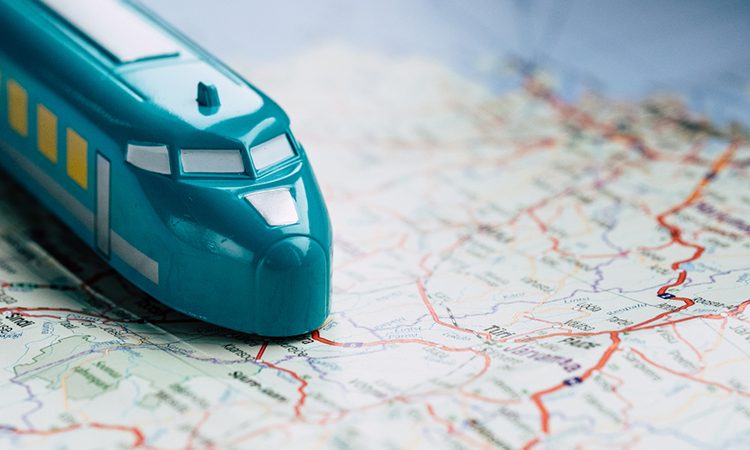

Rail Europe serves a diverse customer base in various regions across Europe. How do you plan to tailor growth initiatives to meet the specific needs and preferences of these different markets?
This, for me, is about one single thing. It’s about empathy.
With Google, I saw the approach that teams were taking to create products that serve billions of users and do it well, whether they’re living in a small, neighbourhood in Jakarta or somewhere in a Western European city. For me, that starts with having a diverse team.
At Rail Europe, we now have people from between 30 and 40 different nationalities. I think having that different cultural background gives you a leg up in understanding the differences and needs that exist in the different markets that we serve.
The experiences that people have around travel are deeply emotional, deeply meaningful. Travel forms some of the most important days and weeks of the entire year for some families, or perhaps shape an important business trip. There’s an emotion and cultural context that’s connected to it.
But there’s also the more, let’s say, rational aspects of travel. So, what are the payment options that you’re using? What are the conventions when it comes to online booking, to what type of devices are you using? Is it a laptop or a budget smartphone? This goes back to my point about really understanding who we’re serving. We need to take this into account when we build our product, when we market our product and when we provide service to our customers.
We are a global company, but personalising and having this regional approach is really part of our DNA.
Finally, looking ahead, what do you see as the biggest challenges and opportunities for Rail Europe in the next three years and how do you intend to navigate them?
Naturally, this is a slightly tricky one for me answer as I’m just joining Rail Europe. As I mentioned earlier, the rail industry is seeing tremendous growth, which is being accompanied with a significant change in the market and competitive dynamics. I’m certain new entrants and different types of value propositions will keep emerging. I guess they already have because of the virtue of that growing market and I think navigating that challenge is certainly going to be an interesting one.
We shouldn’t be doing innovation for innovation’s sake or experimenting with technology just because we can. Again, going back to the mission of the company and the needs of our customers”
We already talked a bit about sustainability. I think both from a regulatory perspective and stakeholder perspective as well as from a consumer perspective, the demands on us will keep increasing. So that’s a huge base for us.
There’s also a significant change in both consumer behaviour, particularly the preferences that people have, what they will demand from a great partner, a great aggregator, a great product. And that’s coupled with technological changes and what looks like a real disruption occurring from a mobile first world to an artificial intelligence (AI) first world.
If we consider the approach in the next few years, we touched on this before. The first part is about investing in the customer experience. It is imperative that we get those pieces right and keep improving some of the things that are just now possible.
We talked a bit about ecosystem, but it’s really about partnerships and alliances and expanding our presence there. So, it’s finding new partners, creating strategic partnerships with these rail operators, but also deepening the existing ones and figuring out how we can create incremental opportunities for our partners and us at the same time.
The third piece is around technology and innovation. We shouldn’t be doing innovation for innovation’s sake or experimenting with technology just because we can. Again, going back to the mission of the company and the needs of our customers, I think having a fantastic engineering and product team that really knows what is just now becoming possible, is where we can bring all of this together.


Related topics
Movers & Appointments, Passenger Experience/Satisfaction, Sustainability/Decarbonisation



